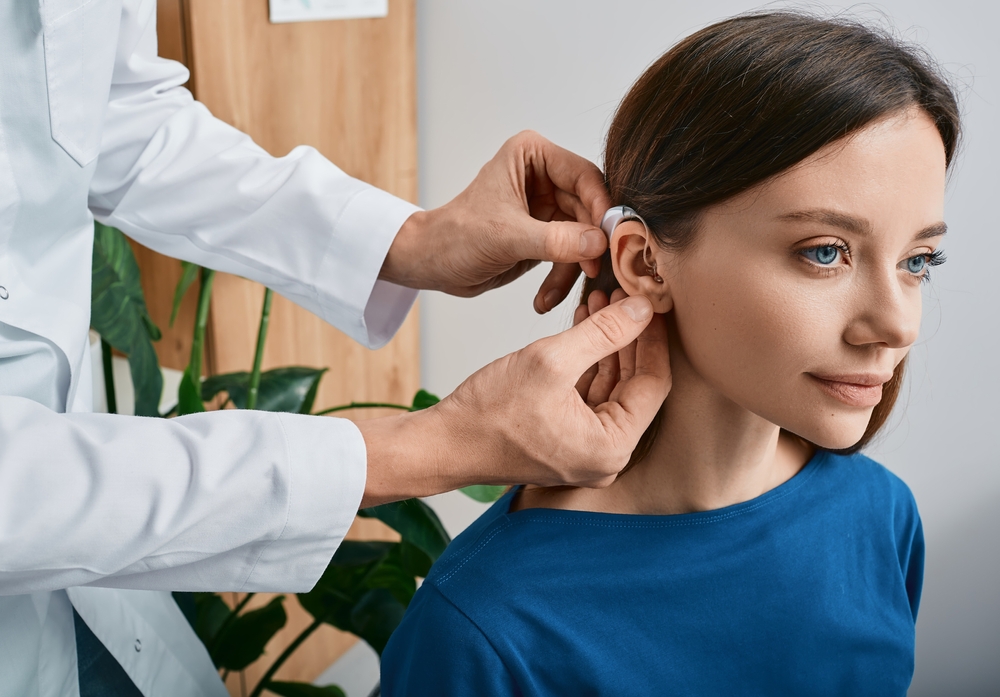Are you experiencing hearing loss? Have you decided that a hearing aid machine is the right solution for you? Congratulations, you’ve taken an important step towards improving your hearing and quality of life. But with so many different types of hearing aids available, how do you choose the right one for your lifestyle? In this article, we’ll explore some key factors to consider when selecting a hearing aid.
Consider your hearing needs
Before you start shopping for hearing aids, it’s important to have a clear understanding of your hearing needs. Ask yourself: what kind of hearing loss do you have? Do you need a hearing aid for one or both ears? Do you spend a lot of time in noisy environments? Are you looking for a hearing aid that can connect to your smartphone or other devices? Answering these questions can help you narrow down your options and find a hearing aid that’s tailored to your specific needs.
Evaluate your lifestyle
When selecting a hearing aid, it’s important to consider your lifestyle. What activities do you enjoy? Do you have an active lifestyle or are you more sedentary? Do you spend a lot of time outdoors or indoors? Do you work in a noisy environment? These are all important factors to consider when selecting a hearing aid. For example, if you enjoy outdoor activities or work in a noisy environment, you may want to consider a hearing aid that has noise-canceling features.
Think about the type of hearing aid
There are many different types of hearing aid solutions available, and each has its own advantages and disadvantages. Behind-the-ear (BTE) hearing aids are the most common type and are suitable for most types of hearing loss. In-the-ear (ITE) hearing aids are custom-molded to fit your ear and are less visible than BTE hearing aids. Receiver-in-canal (RIC) hearing aids are similar to BTE hearing aids but are smaller and less visible. Completely-in-canal (CIC) hearing aids are the smallest and most discreet type of hearing aid but may not be suitable for severe hearing loss. Consider the pros and cons of each type and choose the one that best suits your needs.
Consider the features
Hearing aids come with a variety of features, and it’s important to consider which features are most important to you. For example, some hearing aids have directional microphones that can help you hear better in noisy environments. Some hearing aids can connect to your smartphone or other devices, allowing you to stream music or phone calls directly to your hearing aid. Other features to consider include rechargeable batteries, volume control, and tinnitus management.
Think about the cost
Cost is always a consideration when selecting a hearing aid. Hearing aids can be expensive, and many insurance plans do not cover the full cost. However, it’s important to remember that a high-quality hearing aid is an investment in your quality of life. Don’t let cost be the only factor when selecting a hearing aid, but do consider your budget and look for options that fit within it.
Check reviews and recommendations
When shopping for a hearing aid, it’s important to do your research. Check online reviews and recommendations from other users. Talk to your audiologist or hearing healthcare professional and ask for their recommendations. They can help you find a hearing aid that meets your specific needs and fits your budget.
Consider the fit and comfort
When choosing a hearing aid, it is crucial to consider the fit and comfort of the device. You should look for a hearing aid that fits comfortably in your ear and does not cause any discomfort or pain. A poorly fitting hearing aid can cause skin irritation or ear canal infections, which can be uncomfortable and even painful. Make sure that you discuss the fit and comfort of your hearing aid with your audiologist, and get your device professionally fitted.
Look for user-friendly controls
Some hearing aids come with complex controls that can be difficult to use, particularly if you have manual dexterity problems or vision impairment. If you’re looking for a hearing aid that is easy to control and adjust, look for one with user-friendly controls. Some hearing aids come with smartphone apps that allow you to adjust the settings easily, while others have simple buttons that can be controlled with one hand.
Consider the maintenance requirements
Hearing aids require regular maintenance and cleaning to ensure that they function properly. Before purchasing a hearing aid, make sure that you are aware of the maintenance requirements and are willing to keep up with them. Some hearing aids require regular battery replacement, while others have rechargeable batteries. Some devices require daily cleaning, while others require more infrequent maintenance. Make sure that you are comfortable with the maintenance requirements before making a purchase.
Think about the warranty and repair options
Hearing aids can be expensive, and it’s important to protect your investment by choosing a device with a good warranty and repair options. Look for hearing aids that come with a warranty of at least one year, and make sure that you understand what the warranty covers. Some hearing aids also come with repair or replacement options, which can be helpful if your device becomes damaged or stops working properly. Be sure to ask your audiologist about the warranty and repair options before making a purchase.
Try before you buy
Finally, it’s important to try different hearing aids before making a purchase. Many audiologists and hearing healthcare professionals offer free trials of hearing aids, which allows you to try out the device before committing to a purchase. During the trial, you can wear the device in different environments and test out its features and controls. This can help you determine whether the device is right for your needs and whether it is comfortable and easy to use.
Seek advice from your audiologist
Choosing the right hearing aid can be overwhelming, but your audiologist can help you make an informed decision. They have the expertise to assess your hearing loss, lifestyle, and hearing needs, and can recommend the hearing aid that is most suitable for you. They can also provide information about the features, benefits, and drawbacks of different hearing aids, as well as the costs and insurance options.
Conclusion
In conclusion, choosing the right hearing aid is a crucial decision that requires careful consideration of a variety of factors. By considering your hearing needs, lifestyle, type of hearing aid, features, cost, fit and comfort, user-friendly controls, maintenance requirements, warranty and repair options, and trying the device before you buy it, you can find the hearing aid that is right for you. Remember that a good hearing aid is an investment in your quality of life, so take your time and choose wisely. With the right device, you can enjoy clearer, more comfortable hearing and stay connected with the people and activities that matter most.


